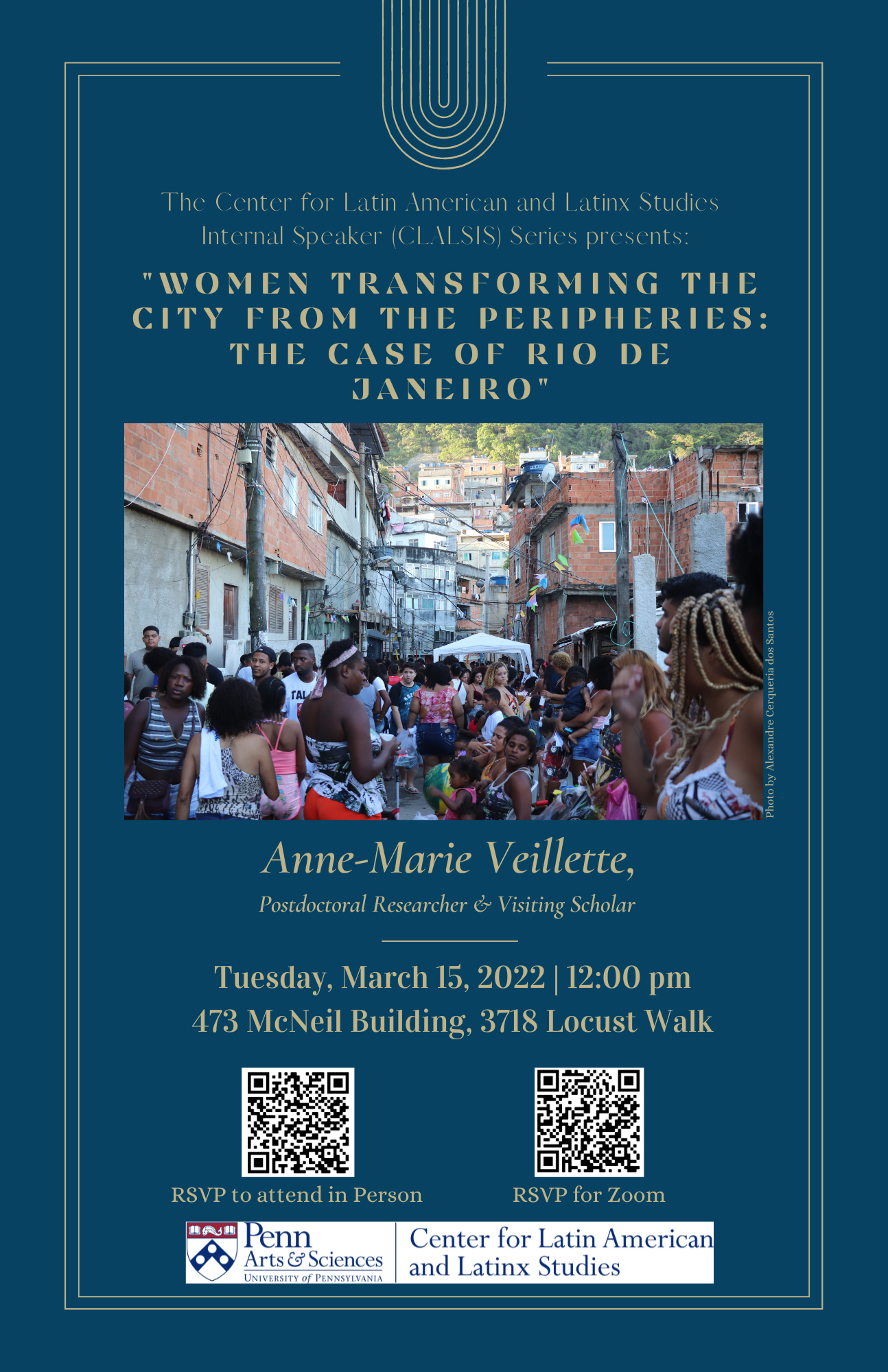CLALSIS
-
473 McNeil Building, 3718 Locust Walk
RSVP here if you plan to attend in person.
If you can't join in person, please RSVP for Zoom.

ABSTRACT
A lot of attention has recently been given to the notion of “planetary urbanization” (Brenner & Schmid, 2015). However useful from a structural point of view, many have criticized its assumption that neoliberalism is the unique driving force of urbanization (Oswin, 2018; Peake et al., 2018). In doing so, other forms of urbanization are left aside, especially those that lie intertwined with everyday life and don’t emerge as “ruptures” at a macro scale.
In this presentation, I argue that significant urban transformations occur, or are initiated at a much smaller scale: the body. Not only is the body ontologically meaningful, he also represents an important—if not crucial, when working with subalternized populations—locale of urban knowledge production. I build this argument on empirical evidence from the favelas of Rio de Janeiro, where I conducted interviews (47), focus groups (6) and participant observations with women residents in 2018 and 2019. I draw from feminist, decolonial and Afrodiasporic theories (Anzaldúa, 1987; Gonzalez, 1988; Simas & Rufino, 2019) in order to show that women play a major role not only in maintaining urban structure and life (Castells, 1978; Chant & McIlwaine, 2015), but in transforming them.
Women successfully navigate city rhythms and uncertainty by transforming themselves, whether to care for others or protect them from urban violence. By doing so, they become very good at anticipating what is “yet to come” (Simone, 2004) and at creating a (black) sense of place (McKittrick, 2011) in an often-hostile city reminiscent of the plantation. Consequently, by looking at women’s body gestures, way of being, and affects, we see emerging a web of knowledge, practices and political struggles that encroachingly (Bayat, 2010) transforms the city, something that, building from Abdias do Nascimento’s notion (1980), can be understood as quilombismo (1).
(1) From the word “quilombo”, used in Brazil for runaway slave communities.
Postdoctoral Researcher at the Department of Africana Studies and Center for Latin American and Latinx Studies

 Center for Latin American and Latinx Studies
Center for Latin American and Latinx Studies